Survive and Thrive – Leveraging Your Board During a Global Crisis
Special Guidance | Written by Dr. Kim Villeneuve
Five key qualities CEOs are leveraging from their Boards
Of the many factors that will contribute to the survival — or demise — of companies during COVID-19, none will be more evident than the influence provided by their Boards of Directors.
Within short order, COVID-19 has turned US businesses large and small on their heads, wreaking havoc that is demanding immediate and decisive action from CEOs – action that will surely have a lasting effect for years to come. While wise CEOs are adhering to the natural tension that maintains a clear distinction between governance and operations, they are also leveraging their Boards to rapidly access and convert the expertise and crisis capability of their Directors. The payoff for a diverse and thoughtfully composed Board is never greater than now. Here are five key qualities CEOs are leveraging from these Boards to ‘survive and thrive’ now, and as challenges of this pandemic continue to unfold:
- Wisdom: In a time of crisis, the gravity of decision-making is magnified. This intensification often results in two responses: 1) A CEO can take an extraordinary wide berth to act unilaterally with the review and blessing of the Board, or 2) like a ship navigating a rocky shoal with the CEO at the helm, it’s all hands on deck with the Board Directors and the CEO creating a synergistic effect – making the sum of its parts greater than the whole. This relationship means that while the Board does not replace the CEO at the helm, Directors share crisis-response wisdom, help read economic signals, interpret market indicators, and encourage innovation during crisis. Board wisdom is the catalyst for great decision making and for innovation – that can look like breaking the mold, or reinventing the company in full or nuanced ways, and using crisis to accelerate change. The key is actively leveraging the collective wisdom of the Board as a catalyst for rapid response, and long-term positioning.
- Breadth of business knowledge: Strong Boards should have diverse representation reflected in both their composition and their access to critical knowledge across all functional disciplines. This helps the CEO fuel comprehensive decision-making with a focus on mitigating risk and ensuring a semblance of business continuity. In the case of a COVID-19 response, strong Boards first provide a hyper-focus on health and safety, supporting the CEO in making some of his/her most difficult decisions about closures, furloughs, layoffs and ways to place the health and safety of employees, suppliers and consumers in alignment with the socially conscious platforms of their brands. A Board’s business knowledge is critical in providing immediate access to insights that inform re-defining the organization’s response to a wholly changed competitive landscape, and marketing decisions that emphasize successful features of the core brand. Also important are understanding volatility, constrained capital markets and debt restructure, to include the implication of how government stimulus packages will impact the business and shareholders’ equity valuation.
- Decisiveness: To define the organization’s response to a wholly changed competitive landscape requires complex decision-making. Leveraging Board influence in the formative stages of problem-solving provides the early foundation from which to build all decisions going forward. This allows the CEO to expedite decisions with laser focus in the clutch.
- Focus on talent levers: Sustaining and even growing during the COVID-19 crisis requires “talent transformation” because, as the business shifts, so does the talent base to respond to those shifts. Carefully aligning talent to match ‘survive and thrive’ strategic goals can be accomplished by removing low performers and adding responsibility to star executives even at the risk of pressing the company to its limit. Talent and organizational culture go together, so aligning the two and preserving and shaping the culture will be a hallmark of the strongest companies. And don’t forget that talent decisions around reorganization must take into account the preservation of specific leaders who will be the underpinning to recovery in the months to come. Most importantly, preparation should reflect the possibility that COVID-19 could impact the CEO and senior leadership team. It is timely to dust off succession plans – revisiting decision trees around executing succession at all levels. Pulling the right talent levers at the right time to reflect and shape culture takes prescience and CEO and Board collaboration can create that line of sight.
- Focus on the future: A pandemic is not bound by the laws of business, rather by ways business strategy can adapt to, and mitigate the pandemic. Business strategies reflecting social distancing, and innovative ways to work within the bounds needed to find equilibrium that allows for eventual eradication of COVID-19 is critical. It is incumbent upon leaders to develop this equilibrium in stages, building foundations from which to venture forth along with risk strategies that can be recalibrated along the way. Boards can influence this by ensuring that the brand is constantly assessed and reflects the brand promise as it aligns with the future.
Survive and thrive strategies depends upon a CEO’s savvy in leveraging the full potential of his/her Board. Tapping the Board’s wisdom and business knowledge can help the CEO be more decisive in a crisis. Board insights can also shed light on “talent transformation” and support the necessity to replace or augment leadership. Finally, with the right level of collaboration Boards and CEOs can develop a well-conceived path forward for long-term success. In a time of crisis – with the right Board and the right collaboration – the whole really can be better than the sum of its parts.
Dr. Kim Villeneuve is the founder and CEO of Centerstone Executive Search & Consulting, a nationally retained firm specializing Executive Search, Outplacement, Board Services, Executive Assessment, and Executive Coaching. Kim is also a coach for elite executives, an adjunct professor at American University’s Kogod School of Business, and guest lecturer at The George Washington University, from which she holds a doctorate in Human and Organizational Learning. Contact Kim at [email protected] or at 703-789-9080.



